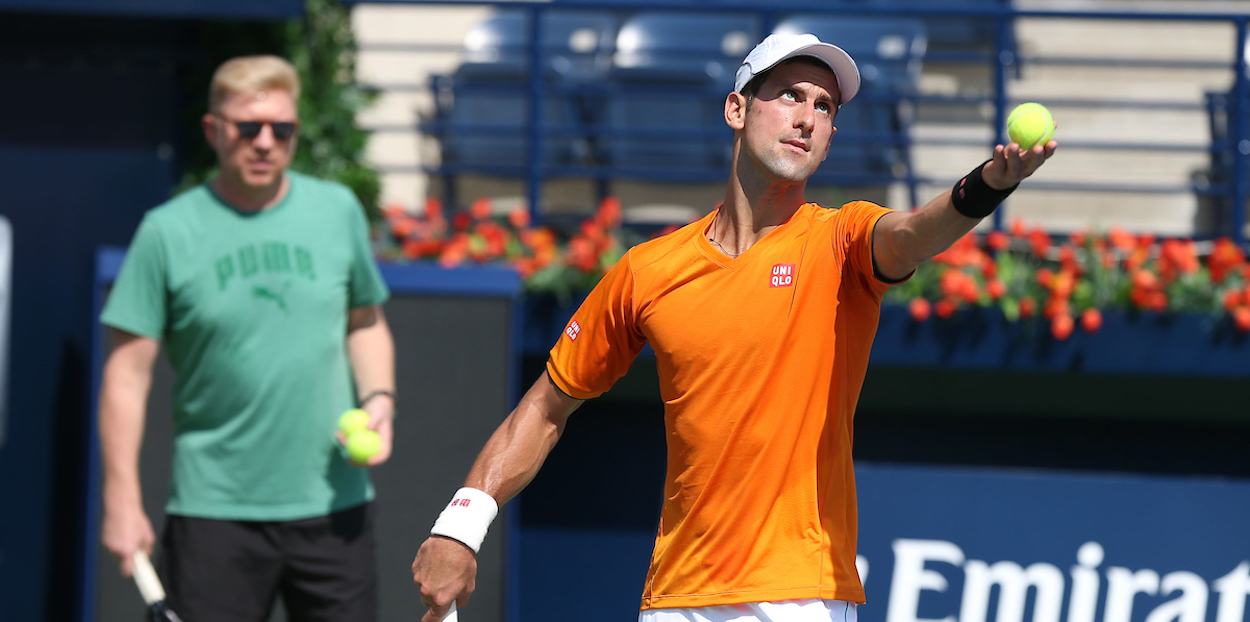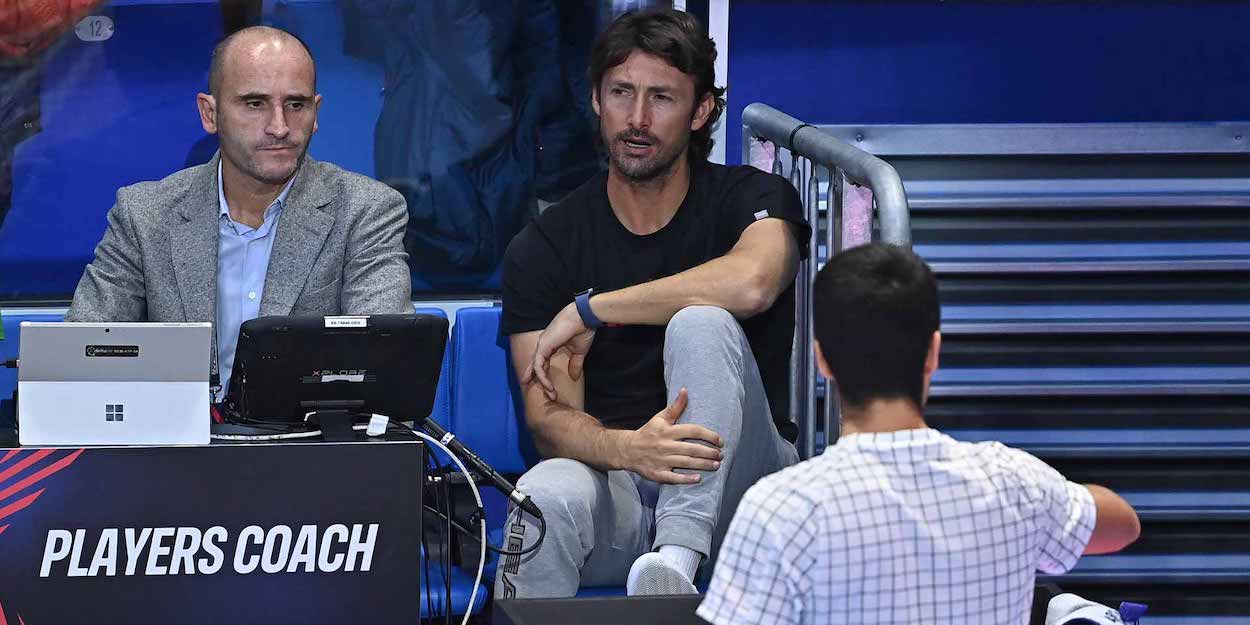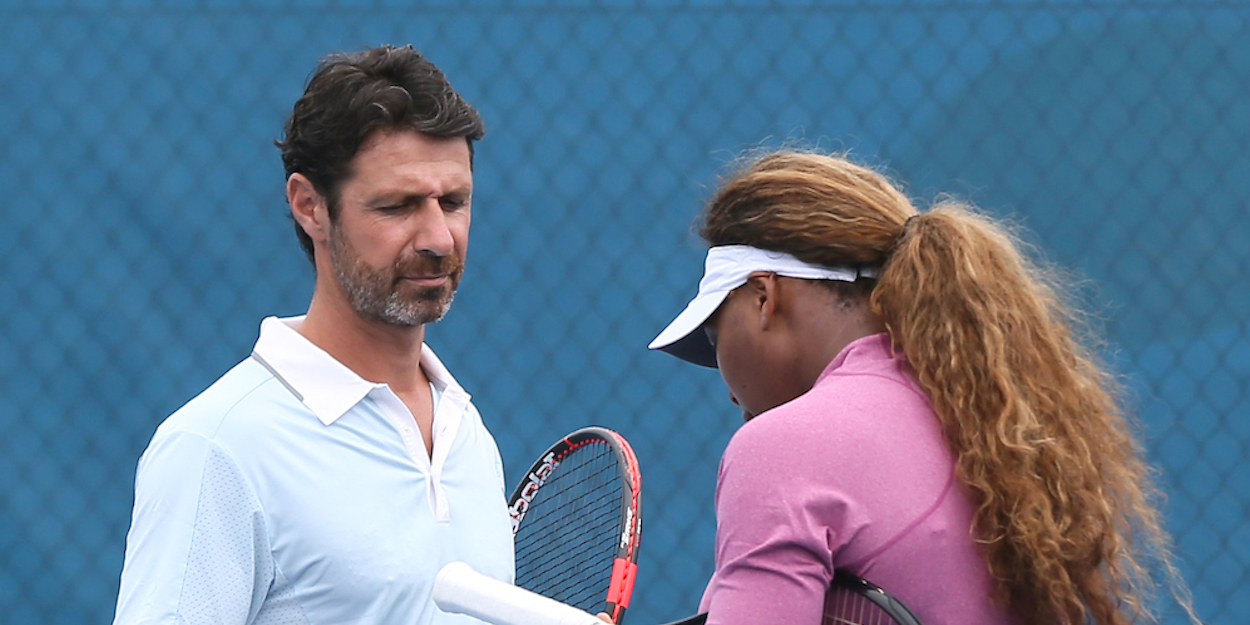
Opinion: Allowing coaching during matches is the wrong move but the negative impacts will take time to materialise
As the ATP Tour’s trial of ‘off court’ coaching begins, Tennishead’s owner Tim Farthing highlights the potentially damaging long term implications that could come about if the change is made permanent, including the unfair advantage this gives to some players who simply “don’t need the help”.
Tennis is materially different to all other sports. It’s a fact. And it’s this fact that makes the sport fascinating and fair whilst giving young players more chances to break into the top level of the game than other sports. But the current trial allowing coaching of players during a match is going to threaten the unique DNA of our sport forever.
What’s the difference between tennis and other sports?
Once a tennis match starts it’s against the rules to receive any advice from anyone. As far as I’m aware, there is no other professional sport that has the same rule. Golfers have a caddy, footballers have half time and a manager screaming instructions from the sideline and boxers have a nice chat with their coach every 3 minutes as they sit down for a drink.
So why does this difference in rules matter so much for tennis?
Well one huge reason it matters is that once the competitive element of tennis has begun then it’s a completely even playing field in terms of support. Novak Djokovic is no different to Luca Tomasetto from Italy (who is currently ranked number 1000 in the world).
But if the rule change does become permanent then both players can have a coach, so what’s the difference I hear you say? Why is that unfair?
It’s unfair because there’s coaching and then there’s ‘coaching’.
Firstly, do you think that Luca Tomasetto can afford to pay for Grand Slam winner Goran Ivanisevic to sit on the sidelines after doing hours of pre-match analysis on his opponent to then pass on nuggets of information, calling on his experience of winning Wimbledon, about where Novak’s opponent is most likely to hit his serve when break point down? No Tomasetto can’t afford it, but Djokovic can.
Secondly, it won’t just stop at that. As time goes on you’ll see someone new on Carlos Alacaraz’s support team tapping away on a handheld screen during the points as they analyse the live footage from the match and receive real time statistics on the shot selection of his opponent to then pass on to the coach to then pass on in the form of advice to their player.
Then you’ll notice that Jannik Sinner has a different coach for matches than he does for practise as a whole new industry for ‘match specialists’ evolves where tennis coach consultants who only focus on how to improve a player’s performance during a match become available, at a hefty price.

Currently the richest and best players already have an advantage as they can afford the support of a much larger team of experts to help craft their game and analyse their next opponents before every match with information being passed to them right up to the start of the match.
But what makes tennis so enjoyable to watch and fair to compete at is that once the match starts, it’s down to the player to use not only their physical assets to overcome their opponent but also their mental skills. If Rafa Nadal is faced with an opponent doing something better than him then he has to try and work out a solution for himself in the heat of the battle at the same time as he’s trying to concentrate on his own performance.
Tennis is already an incredibly difficult physical and technical challenge, then when you throw in the mental challenge it becomes even harder, which is what makes it so addictive to play, so enjoyable to watch and so fair to compete in both as an amateur and a professional.
Taking away a major part of that conundrum by allowing for expert advice during the match will negate a huge element of the challenge of our great sport.

Tennis already has excellent rules in place that basically mean if you get injured during a match you can’t continually receive professional treatment during the match for the same problem. So why, if you can’t work out how to return your opponents serve, should you now be able to receive regular professional advice on how to overcome that challenge? That opponent has worked hard for most of their life to craft their serve and make it into an asset that is difficult for opponents to overcome but now their opponent will be able to seek advice from someone else.
If you haven’t sufficiently prepared your body for a tennis match and then it starts to break down, the current rules say ‘tough luck, prepare better next time’. But that won’t be the case for coaching as it seems the player will be able to continually receive coaching for the same technical challenge throughout the whole match.
Alexander Zverev can already afford the best possible support in terms of coaches, consultants, personal trainers, physiotherapists, dieticians and psychotherapists to benefit from when he’s preparing for a tournament match. He shouldn’t need that advantage during the match as well.
It may seem harmless right now to allow a coach to shout a few words of encouragement to their young charge as he seeks support during a tough period of the match, but this won’t just end there, which is why I really hope this trial period proves detrimental to the fair challenge that is a tennis match and is swiftly sent packing to the graveyard of ideas that ‘seemed like a good idea at the time but…’.
If you enjoyed this then check out all of Tennishead’s weekly opinion articles.
🎾 Free >> Join our legendary newsletter
🎾 Join >> Receive $700/£600 of tennis gear from the Tennishead CLUB
🎾 Social >> Facebook, Twitter, Instagram & YouTube
🎾 Read >> World’s best tennis magazine
🎾 Watch >> How to enjoy ATP/WTA/Slam tennis on TV
🎾 Shop >> Lowest price tennis gear from our trusted partner


